Film puts post-Troubles 'walking wounded' in frame
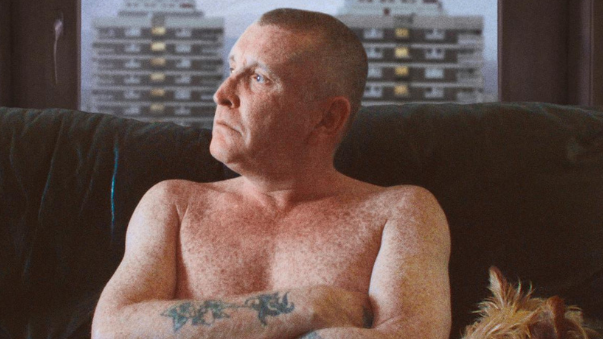
The Flats has been screened at numerous international film festivals
- Published
When a New Lodge resident told Alessandra Celesia that they receive mental health support from “Doctor Smirnoff”, it took her a moment to catch the joke.
"I was actually searching online, hoping to speak with him," the Italian director laughed.
Her husband later clarified - the doctor in question was a popular vodka, often used by those self-medicating.
The film Ms Celesia took seven years to make has been described as a "powerful, urgent and deeply sad", external documentation of life in post-conflict Belfast.
Filmed in one of Northern Ireland’s most deprived, external neighbourhoods, New Lodge, the multi-award winning feature follows local man Joe McNally as he grapples with the legacy of the political violence he was born into.
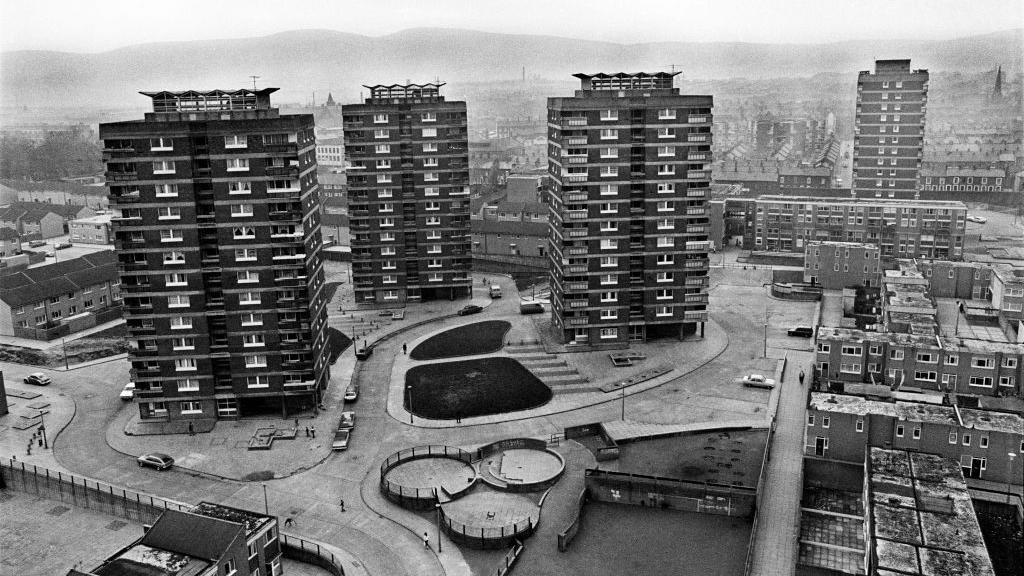
Situated next to an area formerly known as 'murder mile', the New Lodge estate was once among the most dangerous places in Northern Ireland
The conflict, known as the Troubles, lasted almost 30 years and cost the lives of more than 3,500 people.
In that time New Lodge was among the most dangerous places in Northern Ireland.
The IRA had a strong presence and support there and, in response, the British Army deployed large numbers of soldiers, many in makeshift bases at the top of high-rise flats.
In 1975, nine-year-old Joe threw his first petrol bomb, months after his uncle was murdered by the Shankill Butchers - the most prolific gang of serial killers in UK history.
He and a generation of boys just like him found a release in rioting against the Army and RUC police officers.
These days he’s fighting a battle against the estate’s drug dealers, and his own demons.
The Flats: 'You meet all these people, they're so resilient'
'Can't forget, can't move on'
Ms Celesia says he is not the only person for whom the Troubles have left a mark.
“Joe is one of those many men that you can find there, of that age, who can’t forget, who can’t move on, they’re kind of stuck in this post-traumatic stress disorder,” she told BBC News NI.
“He was capable of showing his wounds, he wasn’t afraid, he was very sweet as well. He had a lot of qualities that represent all those other men ... and he was interested as well to dig into his past.”
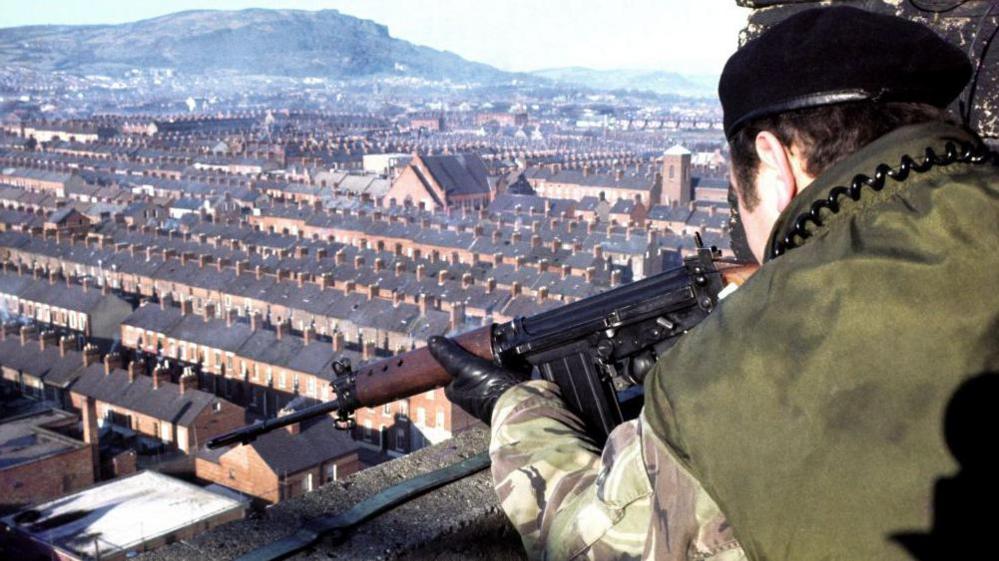
A British soldier takes aim at a suspect from an observation post located on the roof of a tower block in New Lodge, 20 February 1978
Ms Celesia was drawn to the estate by its architecture and people.
It took a while to gain the trust of the locals, she explained, as they were more accustomed to foreign journalists arriving to "quickly grab some information" and leave.
"They eventually said: 'Oh, the Italian madwoman is coming back so often that maybe it means she really cares'.
"It needed that time for them to really trust me so that we could film in a certain way."
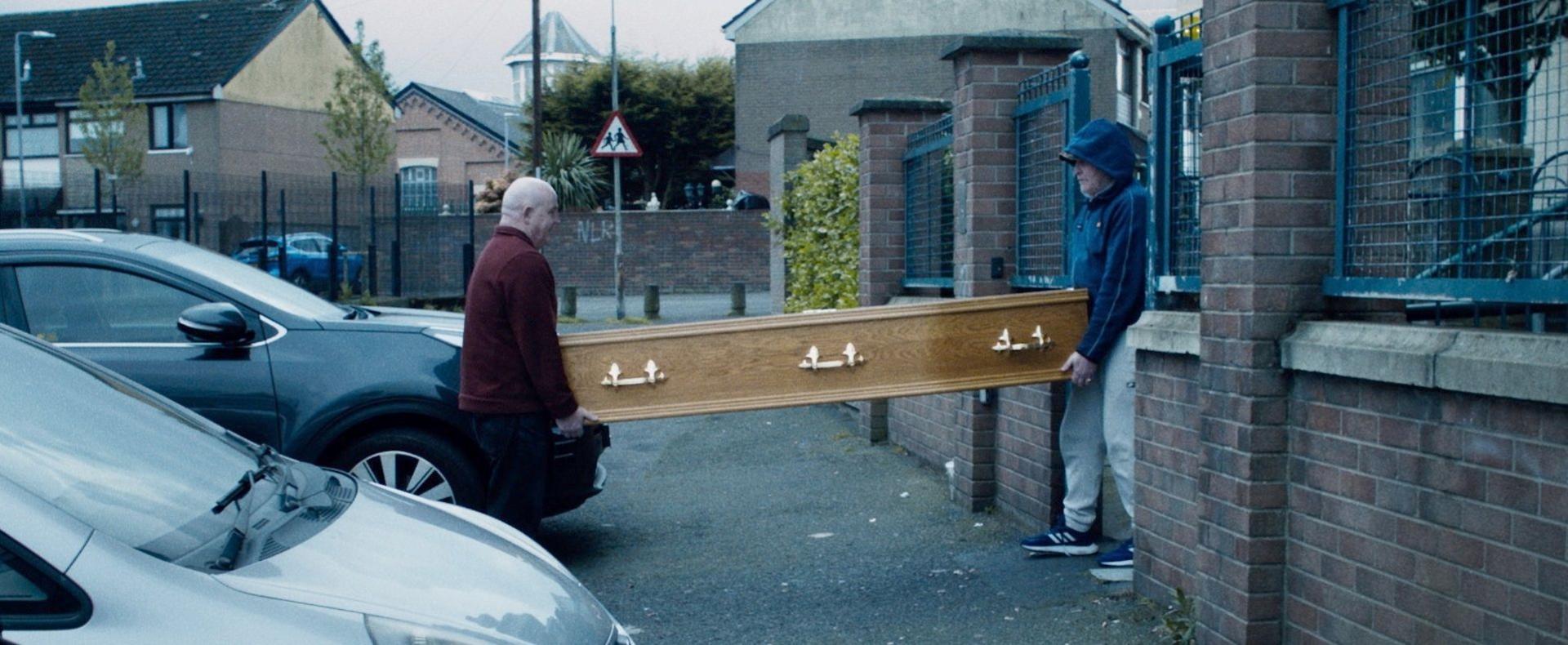
Joe considers his own mortality during the film, at one stage climbing into a coffin
The pair began work on The Flats several years ago, with Rita Overend from the charity PIPS (Public Initiative for Prevention of Suicide and Self-Harm) providing Joe with support and subsequently appearing in the documentary herself.
“Post-conflict these people are just left on their own, the mental health issues they have are considerable and many of Joe’s peers have either died through suicide or they’re actually working with or trying to fight things like addictions,” she explained.

Belfast has the highest suicide rate in the United Kingdom, particularly among young men, and academics have suggested a link between generational trauma and the staggering statistics.
“I’m dealing with people like Joe who have been severely traumatised and severely impacted,” Ms Overend continued.
“These are the walking wounded that people aren’t seeing and for whom there are very little resources.”
For that reason, she feels this is a “hugely important and significant” film that shines a light on the problems of New Lodge and similar working-class estates.
Reasons for N Ireland's high suicide rate
- Published4 February 2016
Troubles trauma - the hidden legacy of violence
- Published17 August 2019
Belfast a 'fabulous backdrop' for NI film industry
- Published26 March 2022
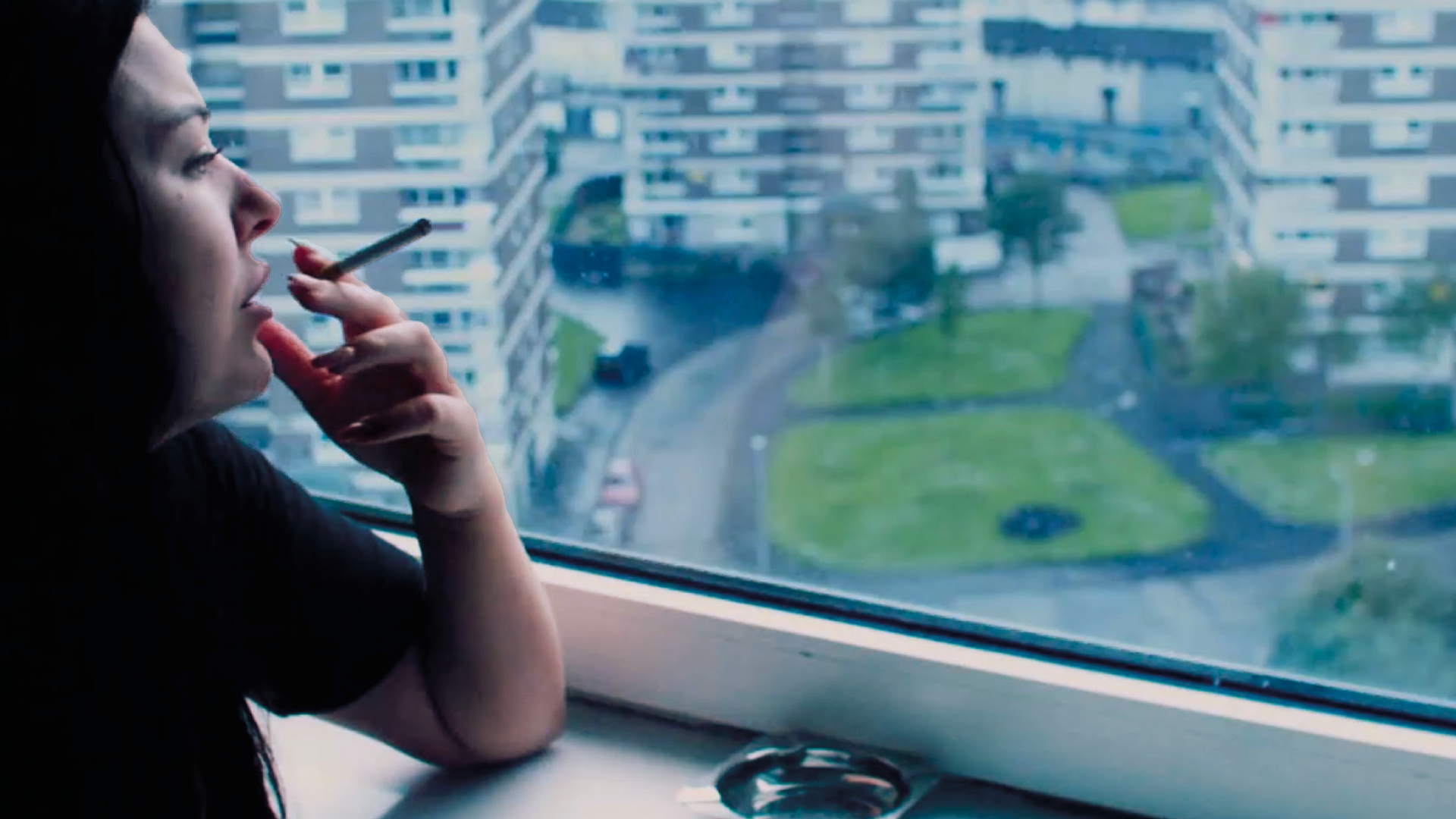
New Lodge residents, including Jolene Burns, appear throughout the film
"You don’t know what the impact will be, we achieved so much more than what I thought was possible," Ms Celesia said.
"What it's doing abroad allows people to talk about any other war - what are the long term consequences? Unfortunately, its more or less the same everywhere."
Seemingly, she is right - the New Lodge story has resonated.
The Flats has already secured big wins at several international festivals.
In March, the film became the first Irish production to be awarded the top prize at the CPH:DOX festival in Copenhagen and it has since been screened in cities such as Switzerland, Munich and as far as Sydney, where some of the audience members included New Lodge expats.
Last month, The Flats was awarded the Pull Focus award at the Docs Ireland showcase in Belfast, which Alessandra described as "the screening of my life".
'It just went on like a bad legacy'
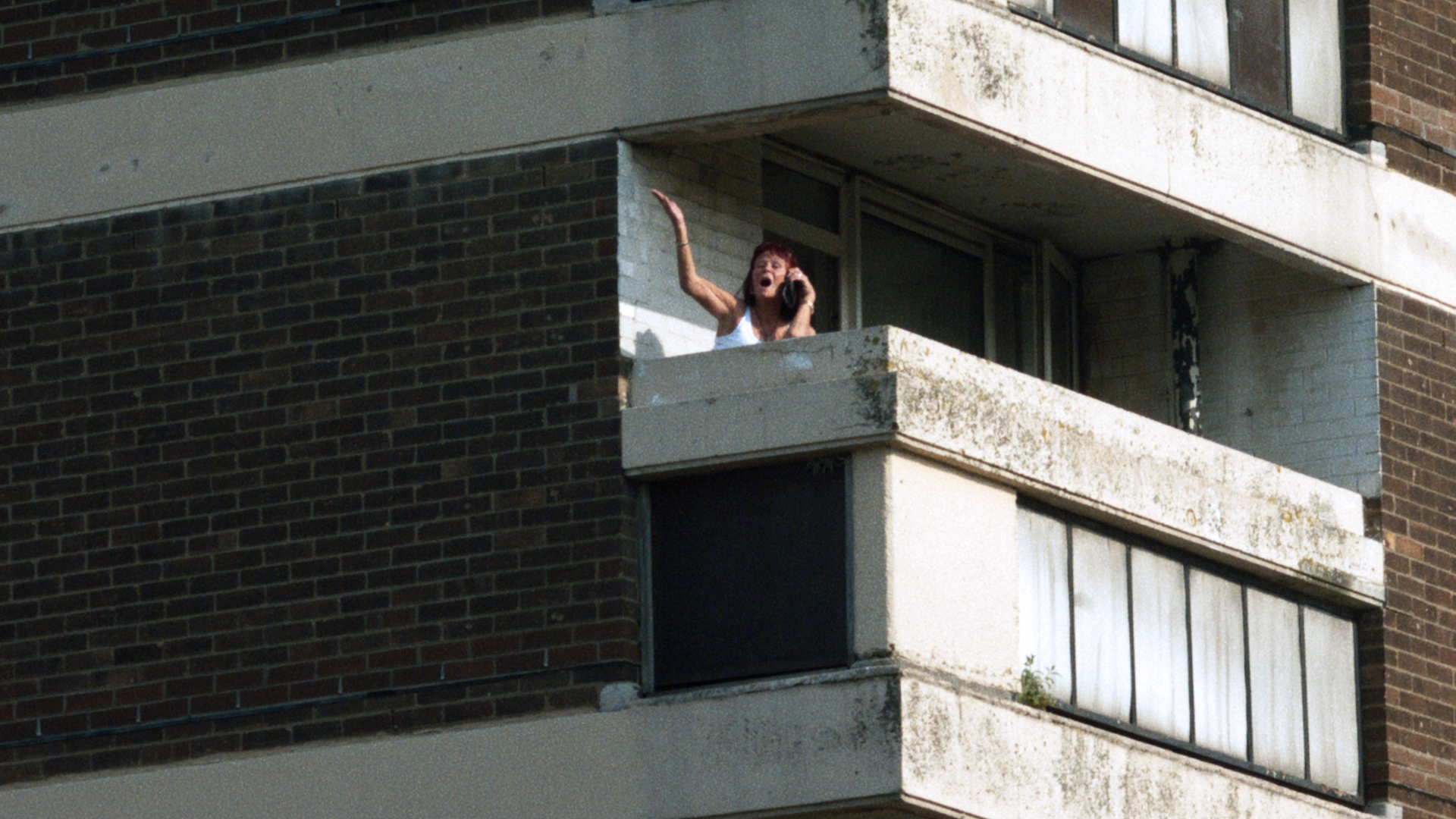
Joe's neighbour, Angie Campbell (pictured), passed away earlier this year
While it is proving successful, The Flats was not a documentary that Ms Celesia ever imagined herself making.
“When I arrived in Northern Ireland I thought I would never make a film about the Troubles because [they were] finished, and that was in 1996,” she said.
“What really surprised me is the long-term consequences of the war, 27 years later I was like: ‘oh gosh, this is still affecting the young generations'.
“It doesn’t stop, it just went on like a bad legacy.”
Looking ahead, Ms Celesia said she hopes to see additional investment in north Belfast, with an emphasis on the arts and youth work, to benefit youngsters like Sean Parker - the boy who took on an acting role in her documentary and brought a young Joe McNally to life.
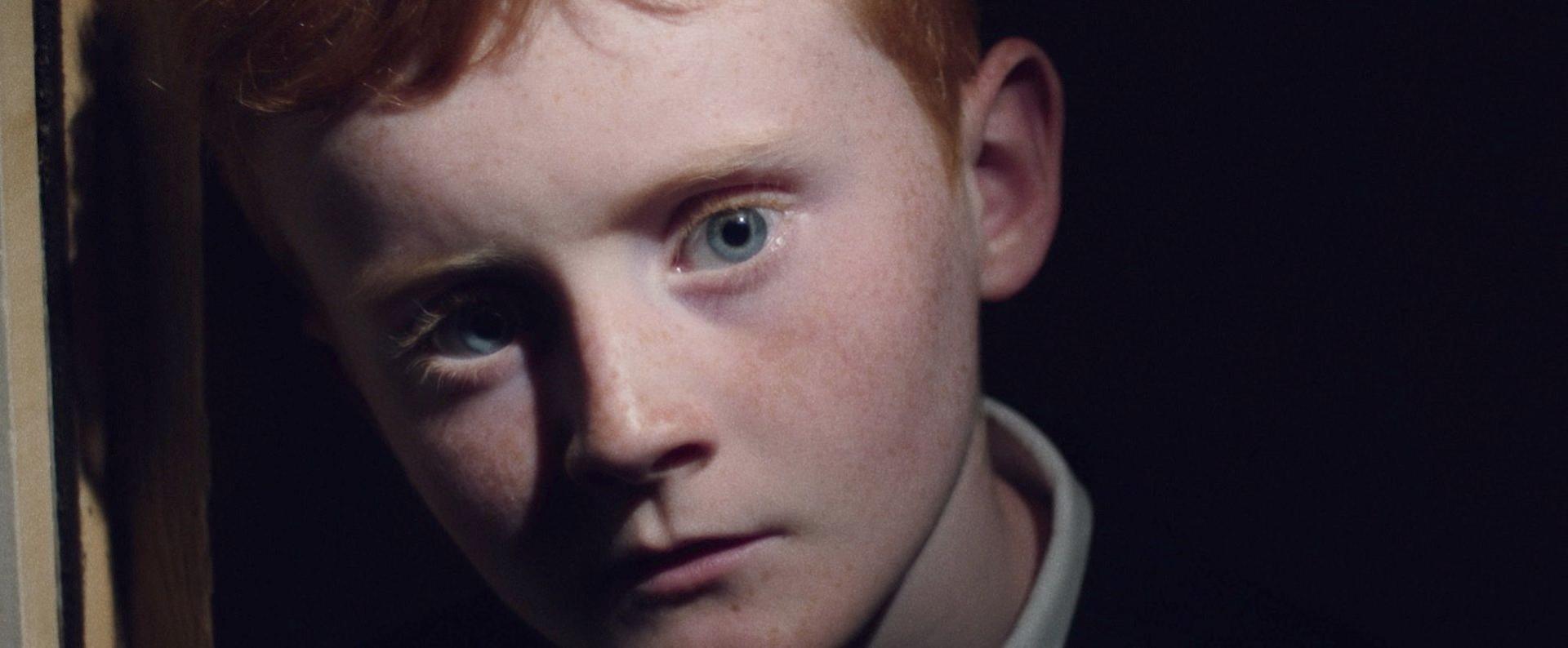
Sean Parker appears in the film as a younger version of McNally
It was the 12-year-old's acting debut, found when the word went out that the film needed a boy with ginger hair.
He was spotted playing outside and was introduced to the director.
"It was a completely new experience being in front of a camera for the first time," he said.
Sean said he was struck by how the man whose younger self he plays had "stuck together and got on with it" in the years following the conflict.
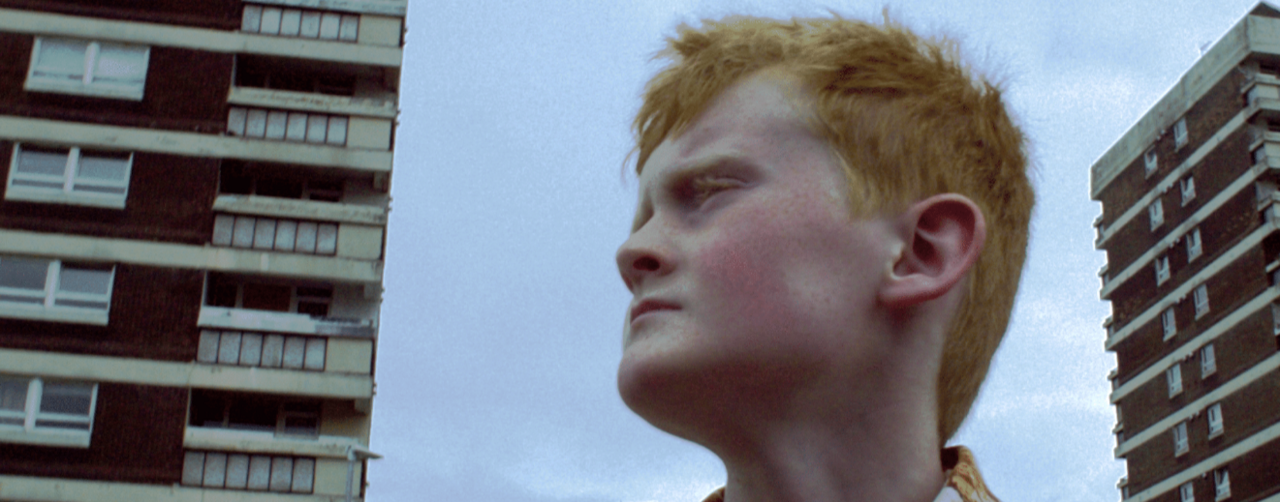
The budding actor says he's getting used to being in front of a camera
The schoolboy said the reception has been "amazing and nerve-wracking at the same time".
And with the acting bug firmly in place, Sean said he's ready for more.
"It depends what comes up, if there's another opportunity, I'll probably take it... I'm well used to the cameras by now."